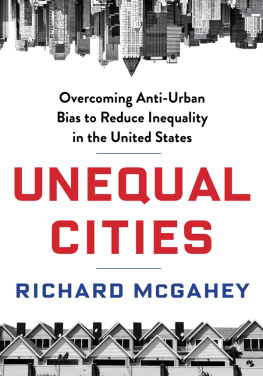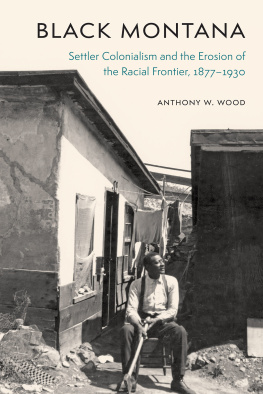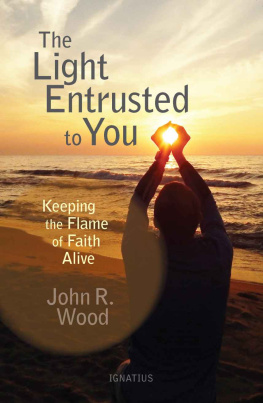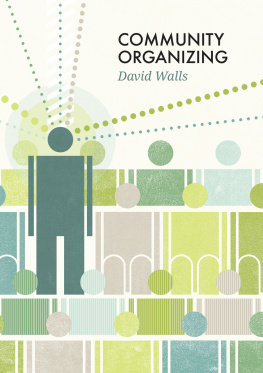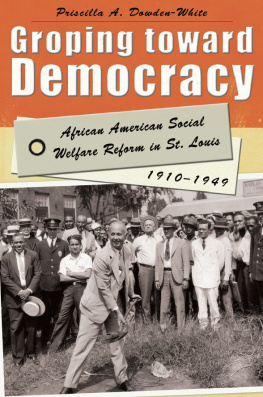A Shared Future
A Shared Future
Faith-Based Organizing for Racial Equity and Ethical Democracy
Richard L. Wood and Brad R. Fulton
The University of Chicago Press
CHICAGO & LONDON
Richard L. Wood is associate professor and chair in the department of sociology at the University of New Mexico. Brad R. Fulton is assistant professor at Indiana University in the School of Public and Environmental Affairs.
The University of Chicago Press, Chicago 60637
The University of Chicago Press, Ltd., London
2015 by The University of Chicago
All rights reserved. Published 2015.
Printed in the United States of America
24 23 22 21 20 19 18 17 16 15 1 2 3 4 5
ISBN-13: 978-0-226-30597-4 (cloth)
ISBN-13: 978-0-226-30602-5 (paper)
ISBN-13: 978-0-226-30616-2 (e-book)
DOI: 10.7208/chicago/9780226306162.001.0001
Library of Congress Cataloging-in-Publication Data
Wood, Richard L., author.
A shared future : faith-based organizing for racial equity and ethical democracy / Richard L. Wood and Brad R. Fulton.
pages cm
Includes bibliographical references and index.
ISBN 978-0-226-30597-4 (cloth : alkaline paper) ISBN 978-0-226-30602-5 (paperback : alkaline paper) ISBN 978-0-226-30616-2 (ebook) 1. Religious institutionsPolitical activityUnited States. 2. Community organizationPolitical activityUnited States. 3. EqualityUnited States. 4. MinoritiesUnited StatesSocial conditions21st century. 5. DemocracyMoral and ethical aspectsUnited States. I. Fulton, Brad R., author. II. Title.
HN90.S6W67 2015
306.60973dc23
2015015810
This paper meets the requirements of ANSI/NISO Z39.48-1992 (Permanence of Paper).
Rev. Joseph Forbes, an elder statesman of racial equity in faith-based community organizing at Faith Voices Action of Communities Creating Opportunity (Kansas City, February 2014).
(Photo by Stacey Schmitz, Communities Creating Opportunity)
This book is dedicated
to
Elder Joseph Forbes
(Ebenezer AME Church and Communities Creating Opportunity in Kansas City)
and to all those who have given their best selves to work for
economic justice
racial equity
immigrant rights
and to building a shared future for us all
Contents
President Obama, Vice President Biden, and faith-based organizing leaders at signing ceremony for the reauthorization of the State Childrens Health Insurance Program (March 2009).
(Photo by Gordon Whitman, PICO National Network)
Thus the second demon is policy paralysis: our national political institutions inability to foster any shared prosperity or good society in the American futuretheir failure, in the context of strategic polarization from above, to effectively address a broad variety of crucial realities undermining a shared American future. Those issues include economic inequality and stagnant family wages, the underclass status of a large immigrant sector, the ballooning national debt, the corrosive influence of unregulated money on elections, and the unsustainable rise of health care costs despite recent policy reforms.
Closely bound up with the first two demons is the recrudescence of a third demon that has forever bedeviled American society: Only by casting out these three demons can the United States hope to build a shared future for all. Yet American society struggles to find adequate democratic means to even begin to do so.
This book plumbs for a way forward against these three demons by analyzing the experience of one broad movement that directly addresses economic inequality, policy paralysis, and racial injustice in the United States. Faith-based community organizing has a decades-long track record of working to advance the ideals of shared democratic life. Projecting that voice has required faith-based organizing to broaden its historic focus on local communities or metropolitan areas in order to build links between local organizing and influence on higher-level policy. Underlying this development has been a new, more ambitious set of political aspirations within some sectors of the field. As one prominent strategist in the field, George Goehl (executive director of National Peoples Action [NPA]) noted:
I think we marginalize ourselves by thinking of [ourselves] as the community organizing sector. I think thats just really small. We want to change the political terrain of the country in a way that creates opportunity and advances racial and economic justice. What do we need to do, to do that? What kind of institutions do we need to build? What kind of talent do we need to attract and train? What kind of infrastructure do we need? What would it take to shift the ideas at the center of American life? And what role does organizing play in that?
We seek answers to Goehls questions not in abstract theory, but by using ideas to illuminate the experience of faith-based organizing coalitions and networks as they address the three demons identified above. In particular, we probe the tension between two ideals of American democracy: the universalist ideal, embodied in the notion that the democratic promise of equal opportunity applies to all Americans regardless of economic class and social identity; and the multiculturalist ideal, embodied in efforts to actually redeem that promise vis--vis subaltern groups that have been historically excluded from it, with legacies that continue today. democratic idealsthat is, between understandings and practices of democracy that emphasize universal principles and absolute equality of citizens before the law, and those that emphasize redressing the unequal status of different groups within a multicultural society. Our focus here will fall less on the theoretical tension between these strands of democratic thinking and more on how that tension-in-principle actually plays out within organizations struggling to advance democratic outcomes.
Thus the insight we offer emerges from a binocular view: one eye on the interplay of universalist and multiculturalist democratic ideals; the other eye on faith-based organizings work to advance democratic voice and equality in multiracial settings, where the dynamic tension between the two ideals is played out.
We show that this tension, when handled effectively, can be politically fertile in the sense of producing new democratic energy for grassroots political efficacy. We show that faith-based community organizing offers an excellent setting for advancing this analytic agenda, because major sectors of that movement are embedded in highly diverse communities and are committed to sustaining internal multicultural pluralism and do so in ways demonstrably effective in external political terms. All of the above have been true of faith-based community organizing at the local level for some time, but two new factors make this analysis particularly timely. First, in the last ten years the field has become markedly more ambitious (and significantly more effective) at projecting power onto higher-level political terrain and into more substantive political fights at the local level. The field thus has greater insight to offer an American society struggling to find adequate democratic means to combat rising inequality. Second, in the past faith-based organizing had largely kept the linkage between multicultural pluralism and the struggle for racial equity


